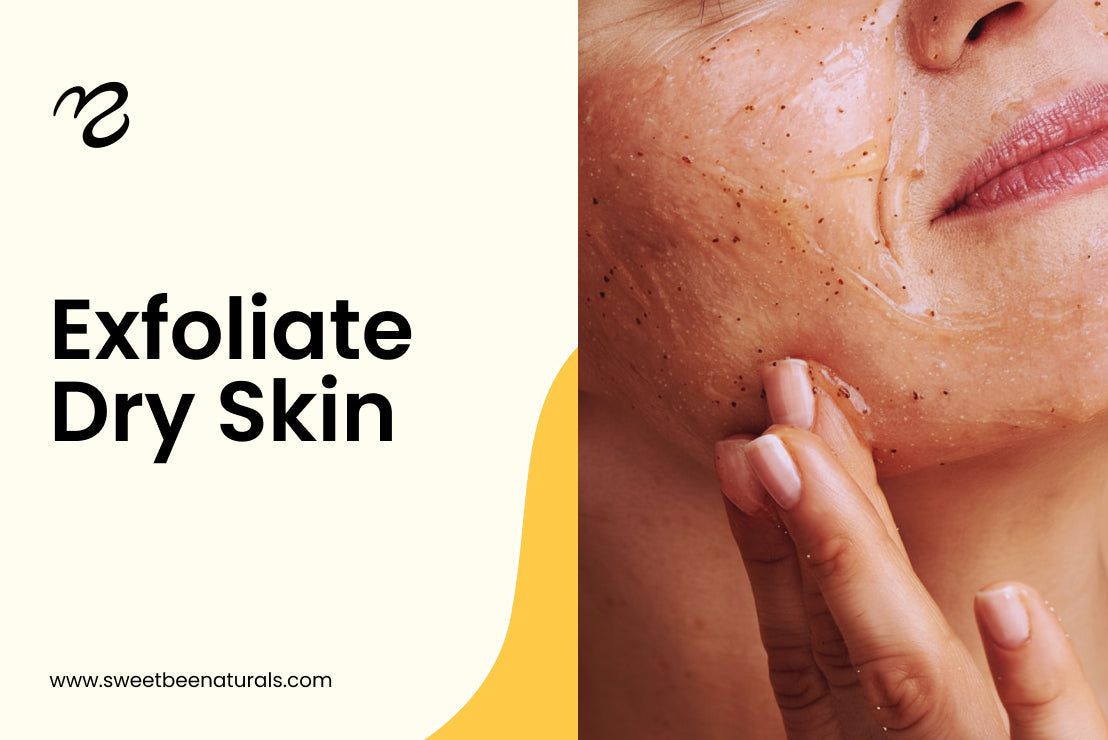Mānuka honey is a name that is becoming increasingly synonymous with natural beauty and skincare solutions. If you are someone who prioritizes healthy skin, this powerful ingredient may just be your next go-to.
While honey has long been revered for its medicinal properties, Mānuka honey takes it to a whole new level by offering unique benefits that can transform your skincare routine.
Its distinctive antibacterial, anti-inflammatory, and moisturizing properties make it one of the most extraordinary ingredients for skincare.
Whether you are struggling with acne, dryness, or skin irritation, Mānuka honey skincare could be your secret weapon.
But what exactly makes it so special? Let’s dive into the science behind this natural wonder.
What is Mānuka Honey?

Mānuka honey is a rare variety of honey that comes from the nectar of the Mānuka tree (Leptospermum scoparium), which is native to New Zealand.
Unlike regular honey, it has unique antimicrobial properties that make it stand out. It contains high levels of methylglyoxal (MGO), a compound known for its potent antibacterial activity.
This potent honey is harvested from the flowers of the Mānuka tree and is often categorized by its Unique Mānuka Factor (UMF) rating.
This rating measures the potency of its antibacterial properties. The higher the UMF, the more influential the honey is for therapeutic and skincare use.
Components of Manuka Honey
It is important to know about the components of Manuka honey if you want to understand why it is more beneficial for the skin as compared to other honey types. Let’s get to know about its composition and how manuka skincare is beneficial for achieving a glowing complexion.
|
Component |
What It Does for Your Skin |
|
Methylglyoxal (MGO) |
|
|
Dihydroxyacetone (DHA) |
|
|
Leptosperin |
|
|
B-Complex Vitamins & Vitamin C |
|
|
Amino Acids |
|
|
Phenolic Compounds |
|
|
Natural Sugars |
|
How Manuka Honey Is Used
Manuka is safe to use on your skin, even if you have sensitive skin. You can apply it directly to your skin or do spot treatment for acne or inflammation. Besides you can also opt for Manuka honey-based products.
Manuka honey-containing cleansers are beneficial for removing dirt and other pollutants from your skin without disrupting your natural skin barrier. Moisturizing with this natural ingredient also hydrates your skin deeply and heals its hidden scars. Due to this healing property, it is also used in dressings to heal wounds and burns in less time.
However, if you want to use it for deep skin healing and cleaning, you can apply its mask every 2 to 3 days a week. Just apply it on your face, leave for 15 to 20 minutes, and rinse it with lukewarm water. You will get plump and smooth skin.
What the Science Says About Manuka Honey
Manuka honey has science-backed wound healing, anti-inflammatory, and regenerating properties. Let’s review some studies about manuka honey and skin care.
- Manuka honey is good for wound healing after major surgeries, including Mohs and surgical incision sites. It not only closes the wounds but also prevents bacterial infections.
- A clinical trial showed that using manuka honey overnight for 7 days made a big difference in treating atopic dermatitis. The skin got better, with less inflammation and fewer active mast cells, which are part of the body’s immune response.
- Some Other studies also back this research. They say honey has strong antimicrobial and anti-inflammatory powers. This means it can help calm eczema flare-ups and stop infections from happening.
- Manuka honey is also renowned for its skin regenerative properties. It stimulates collagen fiber generation, closes the wound, and plays a significant role in major wound healing.
Possible Side Effects of Manuka Honey
Manuka honey is good for all skin types and is a solution for numerous problems. However, it may have a few side effects if not used properly. Here are a few drawbacks of manuka honey given below.
-
Allergic reactions: You may develop redness, itching, or a rash, especially if you are allergic to bees or pollen.
-
Breakouts from impure honey: Using non-medical-grade or uncertified manuka honey may introduce impurities, leading to clogged pores or acne.
-
Sticky residue: The thick, sticky texture can be hard to remove and may attract dust or bacteria if left on too long.
- Interaction with broken or infected skin: Although manuka honey helps with healing, applying it to deep wounds or severe infections without medical advice can delay proper treatment.
How Does Manuka Honey Differ From Other Types Of Honey?
Manuka honey has both healing and beauty properties that make it unique compared to traditional honey. It has a confined origin and is only cultivated from the Leptospermum scoparium, a plant that is only found in New Zealand.
Another factor that makes it unique is the Unique Manuka Factor (UMF) rating. This grading system tells about the composition of the manuka and measures the quantity of MGO, DHA, and leptosperin. Mānuka honey with UMF more than 10 is good for therapeutic and skincare uses.
Last but not least, the healing enzymes present in manuka honey are not part of traditional honey. These enzymes make this special type of honey a good antibacterial and healing ingredient.
Why Mānuka Honey is a Skincare Game-Changer
Now that you know what manuka honey is, let’s see why you should add Mānuka honey to your skincare routine:
-
Antibacterial Properties
Mānuka honey’s ability to fight bacteria is one of the reasons it is considered adequate for acne-prone skin treatment. Its high levels of MGO work as a natural antibacterial agent and prevent the growth of acne-causing bacteria.
Unlike other products that may strip the skin of essential oils, Mānuka honey fights bacteria without disrupting your skin’s natural moisture balance.
-
Anti-Inflammatory Effects
Another reason why Mānuka honey is effective in skincare is its anti-inflammatory properties. Inflammation is a common cause of redness, irritation, and puffiness in the skin.
Whether it is due to acne, eczema, or sunburn, Mānuka honey can soothe and calm the skin by reducing inflammation and promoting a more even skin tone.
-
Moisturizing Abilities
Mānuka honey is also an excellent humectant, which means it attracts moisture from the environment into your skin. Its ability to retain hydration makes it an ideal ingredient for a deeply nourishing skincare routine.
It helps keep your skin hydrated without making it greasy and is suitable for all skin types, including oily and acne-prone.
-
Wound Healing and Scar Reduction
Mānuka honey has been valued for its wound-healing properties for centuries. Its antibacterial and anti-inflammatory effects also make it an excellent remedy for soothing and repairing minor cuts, burns, and skin abrasions.
When applied to the skin, it can create a protective barrier that prevents infection.
It has also been shown to help reduce scarring. The gentle exfoliating properties of Mānuka honey help to promote skin regeneration and cell turnover, reducing the appearance of scars over time.
How Can You Use Manuka Honey in Your Skincare Routine?

Now let’s explore some effective ways you can use this powerhouse ingredient in your everyday beauty regimen.
-
Cleansers
Using a Mānuka honey-infused cleanser is a great way to start your day with clean, healthy skin. The natural antibacterial properties of Mānuka honey can help remove dirt, oil, and bacteria without disrupting your skin’s natural moisture barrier.
-
Moisturizers
For those seeking hydration and nourishment, Mānuka honey moisturizers are a must. These products lock in moisture while providing the skin with essential nutrients.
Whether you have oily, dry, or combination skin, its moisturizers offer a lightweight yet effective way to keep your skin hydrated and glowing.
-
Masks
Mānuka honey face masks are an excellent treatment choice for those who want to address specific skincare concerns, such as acne, dryness, and uneven skin tone.
By applying a Mānuka honey mask once or twice a week, you can deeply nourish and rejuvenate your skin, giving it a radiant, healthy glow.
Want Organic Skincare That Works? Discover Sweet Bee Magic
If you're looking to incorporate organic ingredients into your skincare routine, Sweet Bee Magic offers a collection of products that harness the natural power of honey.
We blend natural ingredients with sustainable practices to deliver gentle, effective skincare solutions.
We take pride in offering only the highest-quality USDA-certified organic bee products, ensuring purity and potency with every jar. Each product is handcrafted in small batches in the USA, ensuring freshness and exceptional quality.
Formulated by Dr. Marcelo Buzzi, a leading expert in bee-derived wellness, our products are free from synthetic additives. This is how we deliver the very best that nature has to offer.
Conclusion
Mānuka honey is undoubtedly a game-changer in skincare. Its antibacterial, anti-inflammatory, and moisturizing properties make it an exceptional ingredient for tackling a variety of skin issues, from acne to dry patches.
By incorporating Mānuka honey into your routine, you can experience the transformative benefits of this natural wonder.
FAQs
Is Mānuka honey suitable for all skin types?
Mānuka honey is suitable for all skin types, including sensitive, oily, and acne-prone skin. Its moisturizing properties make it ideal for dry skin, while its antibacterial effects help combat acne and breakouts.
How long should I leave a Mānuka honey mask on my face?
For optimal results, leave a Mānuka honey mask on your face for 15-20 minutes. This allows the honey to work its antibacterial, moisturizing, and healing magic on your skin. Afterward, rinse with warm water for soft and refreshed skin.
Can I use Mānuka honey for my lips?
Absolutely! Mānuka honey is a fantastic ingredient for dry, cracked lips. Its moisturizing and healing properties make it an excellent natural remedy for chapped lips.
Apply a thin layer of Mānuka honey as a lip balm or use it in a DIY lip scrub for soft, smooth lips.
Can you put Manuka honey directly on your skin?
You can apply Manuka honey directly to your skin. However, if you are allergic to pollen or honey bees, or you doubt the purity of honey, then test it on a small patch of your skin before applying to a larger area.
How long can I leave Manuka honey on my skin?
It is recommended to leave manuka honey for 15 to 20 minutes on your skin for a good result. However, you can consult with your dermatologist if you doubt that you have an allergic reaction.
Does Manuka honey fade dark spots?
Manuka honey helps promote skin renewal by exfoliating dead skin cells and regenerating new skin cells. In this way, it can remove the dark spots. Besides, it also removes hyperpigmentation and makes your skin smooth, shiny, and glowing.
Can Manuka honey heal a skin infection?
Manuka honey has antibacterial and wound-healing properties. Therefore, it is effective in healing infections and preventing them in the future.



